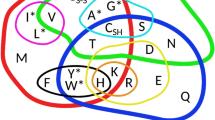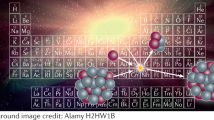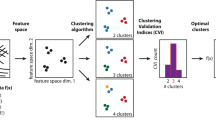Abstract
IN the attempts made to classify the stars by means of their spectra, from Rutherford's time to quite recently, the various criteria selected were necessarily for the most part of unknown origin; with the exception of hydrogen, calcium, iron, and carbon, in the main chemical origins could not be assigned with certainty to the spectral lines. Hence the various groups defined by the behaviour of unknown lines were referred to by numbers, and as the views of those employed in the work of classifying differed widely as to the sequence of the phenomena observed, the numerical sequences vary very considerably so that any coordination becomes difficult and confusing.
This is a preview of subscription content, access via your institution
Access options
Subscribe to this journal
Receive 51 print issues and online access
$199.00 per year
only $3.90 per issue
Buy this article
- Purchase on Springer Link
- Instant access to full article PDF
Prices may be subject to local taxes which are calculated during checkout
Similar content being viewed by others
References
Roy. Soc. Proc., vol. lxiv. p. 398.
Roy. Soc. Proc., vol. lxiv. p. 396.
Astro.-Phys. Journ., vol. v. p. 92, 1897.
Roy. Soc. Proc., vol. lxi. p. 182.
"Sur les étoiles à de la troisème classe."
Roy. Soc. Proc., vol. lxi. p. 182.
Rights and permissions
About this article
Cite this article
On the Chemical Classification of the Stars1. Nature 60, 52–54 (1899). https://doi.org/10.1038/060052f0
Issue Date:
DOI: https://doi.org/10.1038/060052f0
Comments
By submitting a comment you agree to abide by our Terms and Community Guidelines. If you find something abusive or that does not comply with our terms or guidelines please flag it as inappropriate.



